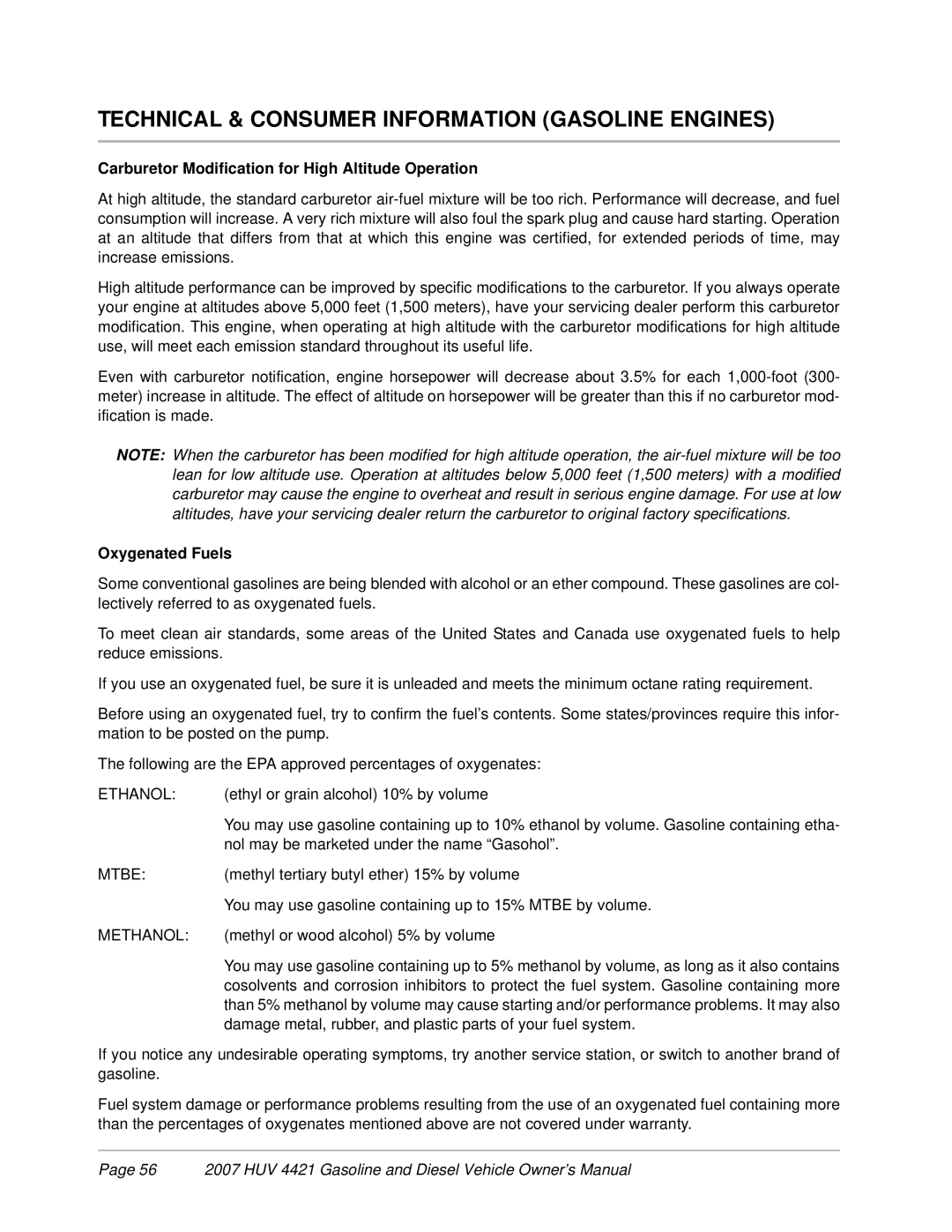
TECHNICAL & CONSUMER INFORMATION (GASOLINE ENGINES)
Carburetor Modification for High Altitude Operation
At high altitude, the standard carburetor
High altitude performance can be improved by specific modifications to the carburetor. If you always operate your engine at altitudes above 5,000 feet (1,500 meters), have your servicing dealer perform this carburetor modification. This engine, when operating at high altitude with the carburetor modifications for high altitude use, will meet each emission standard throughout its useful life.
Even with carburetor notification, engine horsepower will decrease about 3.5% for each
NOTE: When the carburetor has been modified for high altitude operation, the
Oxygenated Fuels
Some conventional gasolines are being blended with alcohol or an ether compound. These gasolines are col- lectively referred to as oxygenated fuels.
To meet clean air standards, some areas of the United States and Canada use oxygenated fuels to help reduce emissions.
If you use an oxygenated fuel, be sure it is unleaded and meets the minimum octane rating requirement.
Before using an oxygenated fuel, try to confirm the fuel’s contents. Some states/provinces require this infor- mation to be posted on the pump.
The following are the EPA approved percentages of oxygenates:
ETHANOL: | (ethyl or grain alcohol) 10% by volume |
| You may use gasoline containing up to 10% ethanol by volume. Gasoline containing etha- |
| nol may be marketed under the name “Gasohol”. |
MTBE: | (methyl tertiary butyl ether) 15% by volume |
| You may use gasoline containing up to 15% MTBE by volume. |
METHANOL: | (methyl or wood alcohol) 5% by volume |
| You may use gasoline containing up to 5% methanol by volume, as long as it also contains |
| cosolvents and corrosion inhibitors to protect the fuel system. Gasoline containing more |
| than 5% methanol by volume may cause starting and/or performance problems. It may also |
| damage metal, rubber, and plastic parts of your fuel system. |
If you notice any undesirable operating symptoms, try another service station, or switch to another brand of gasoline.
Fuel system damage or performance problems resulting from the use of an oxygenated fuel containing more than the percentages of oxygenates mentioned above are not covered under warranty.
Page 56 2007 HUV 4421 Gasoline and Diesel Vehicle Owner’s Manual
